Hurricanes: The why of its existence.
Hi guys, today I want to talk a little about this atmospheric phenomenon that affects tropical and subtropical countries. Hurricanes as we all know are part of the natural threats that exist on our planet and for that reason it is necessary to know a little more about them.
To begin with, these phenomena cause enormous damage every year and it seems that they are getting worse. Why are there hurricanes? ... Every wind is caused by a pressure difference in the air that is at higher pressure, always moving towards where there is less pressure.
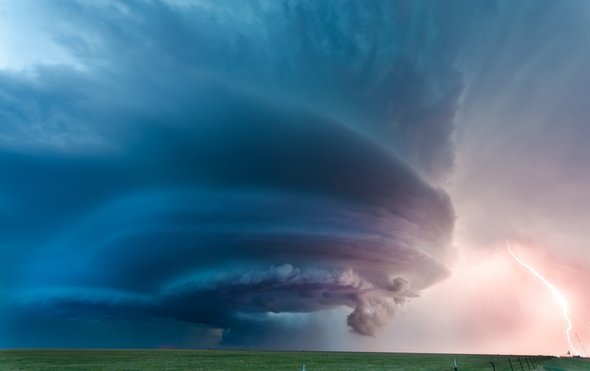
What causes a volume of air to lower its pressure?
Mainly the heat: when the air heats up, its molecules separate, which makes it less dense and tends to rise pushed by the air that is colder and denser. For a hurricane to form there must be warm water, light winds in the upper part of the atmosphere and the air must be humid. The zone of the sea where the water is warmer, besides forming storm clouds, creates a zone of low pressure in the air. Then the surrounding air flies to fill that space. Only they do not address the center directly, but on a diagonal. This is due to the Coriolis effect. You see, since the earth is a spinning sphere, the speed of someone standing closer to the equator is greater than the velocity of someone standing closer to the poles. Due to the Coriolis effect, the winds approaching the center of the storm give this phenomenon the shape of a spiral. By this same effect all the hurricanes of the South hemisphere rotate in the sense of the hands of the clock and all of them of the North hemisphere, on the contrary. Also for that reason, hurricanes can not cross the Equator line. Did you know?
As the air gets closer to the center, the heat of the water increases its temperature, which causes it to rise and in turn pull more air from the outside: the speed of the winds increases more and more.
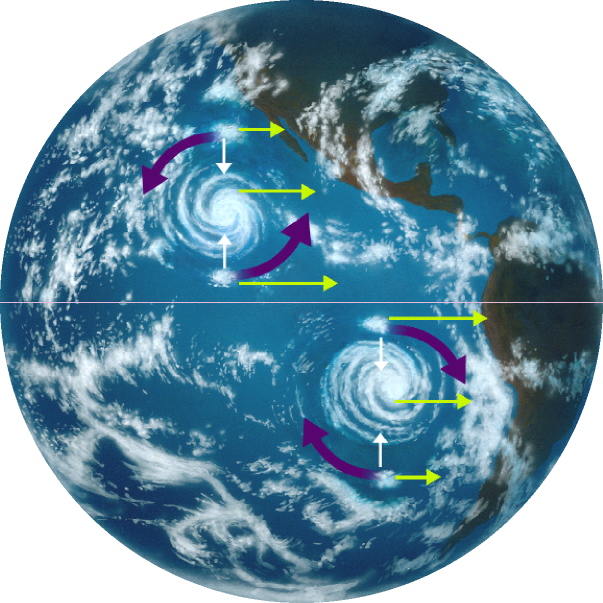
Hurricanes are enormous heat engines that generate energy on a staggering scale. They draw heat from warm, moist ocean air and release it through condensation of water vapor in thunderstorms.
The strongest hurricanes come to have winds of up to 320 kilometers per hour near the eye, almost the speed of sound. The winds become so powerful that it is estimated that a hurricane releases as much energy as an atomic bomb of 10 megatons every 20 minutes. But one of the greatest dangers is not the wind itself, but its consequence: the storm surge. The thrust of the air is so strong that it creates a wave that makes sea level rise to 9 meters, the floods are catastrophic. Although meteorological science is of great complexity and it can not be said that this or that hurricane was "caused by man", it is undeniable that climate change has an effect on the frequency and destructive power of these phenomena. There is no longer any doubt that greenhouse gas emissions are increasing the temperature of air and water.
In recent years, scientists have debated whether human-caused global warming is affecting hurricanes by making them stronger or causing them to occur more frequently. (Related: "Rising Temperatures May Cause More Katrinas.")
"Hurricane Season" begins on June 1 and ends on November 30, although hurricanes can, and have, occurred outside of this time frame. NOAA's National Hurricane Center predicts and tracks these massive storm systems, which occur, on average, 12 times a year in the Atlantic basin.
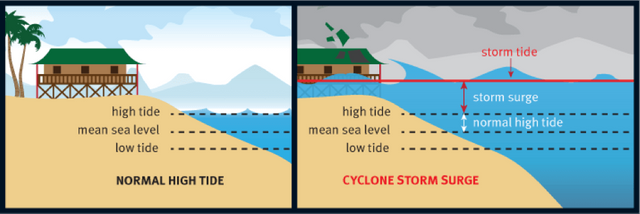
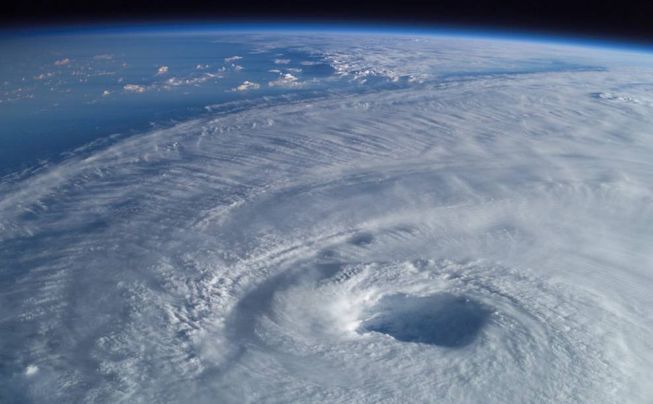
As the water of the seas is warmer, there is more energy for the formation of hurricanes and if the sea level increases, the floods will be more serious. When the hurricane reaches the mainland, it stops feeding on the heat of the sea water and loses strength until it disappears, but while that happens it is capable of causing great damage.
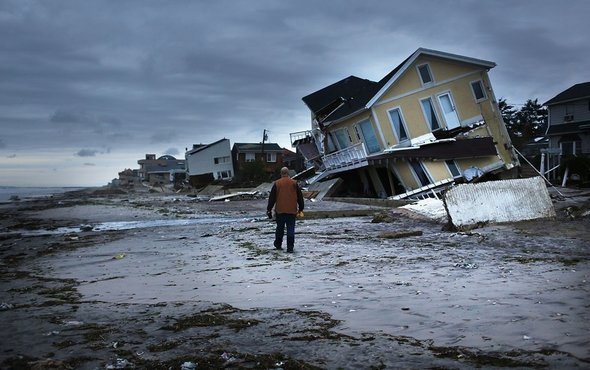
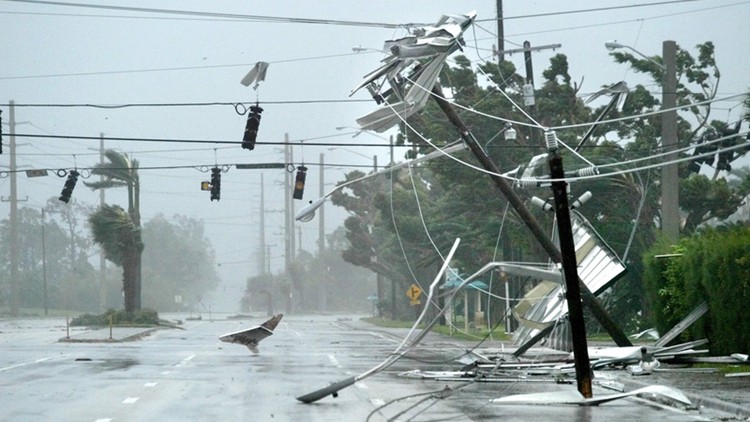
In the face of the threat of hurricanes, it is advisable to prepare:
- Make a disaster kit with a kit, drinking water, a battery radio and money for emergencies.
- Reinforce the doors and windows of your house.
- Clean the roofs to prevent them from flooding.
- Prune nearby trees to prevent weak branches from separating and hurting someone.
- Make a plan with your family to agree on meeting points and ways to communicate.
- Be attentive to the communications of the meteorological services of your community.

By the way, in the south pacific this same phenomenon is called "Cyclone", a term that comes from the Greek word meaning "Wheel". In the North Pacific they say "Typhoon" which comes from Chinese and means "Huge Wind". And in the Atlantic Ocean we use the name that the ancient Mayans and Tainos gave to the God of the "heart of the wind": Hurricane!
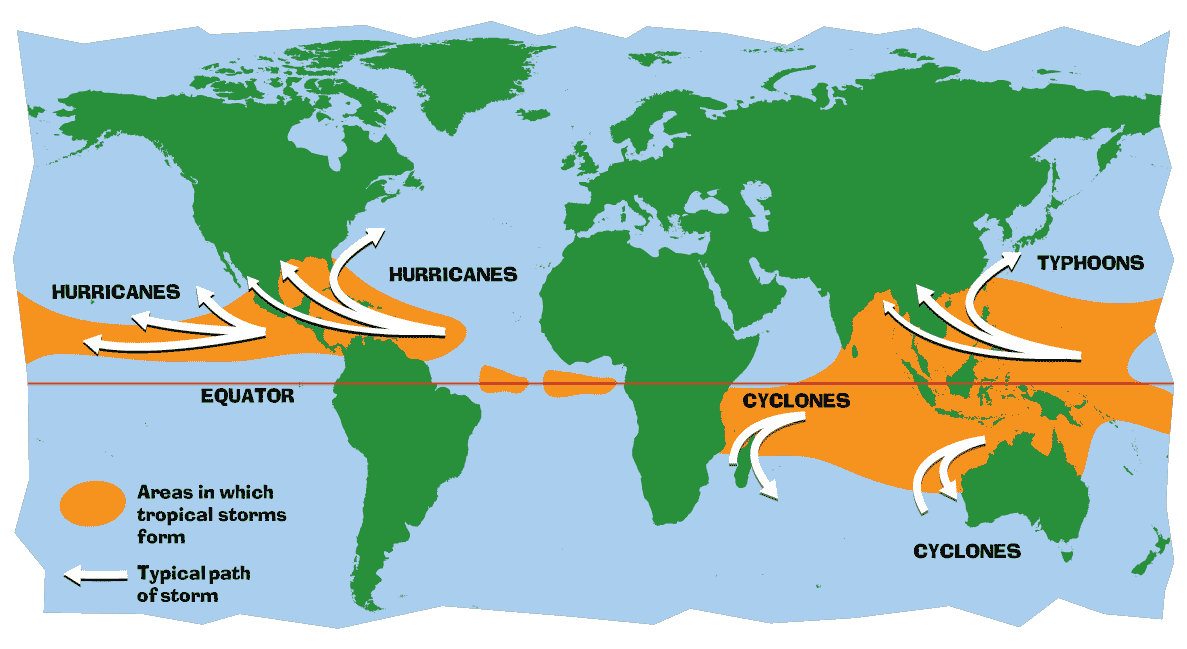
Hurricanes are tropical storms that form over the North Atlantic Ocean and Northeast Pacific.
Cyclones are formed over the South Pacific and Indian Ocean.
Typhoons are formed over the Northwest Pacific Ocean.
You received a 60.0% upvote since you are a member of geopolis.
To read more about us and what we do, click here.
https://steemit.com/geopolis/@geopolis/geopolis-the-community-for-global-sciences-update-3
If you do not want us to upvote and comment on your posts concerning earth and earth sciences, please reply stop to this comment and we will no longer bother you with our love ❤️